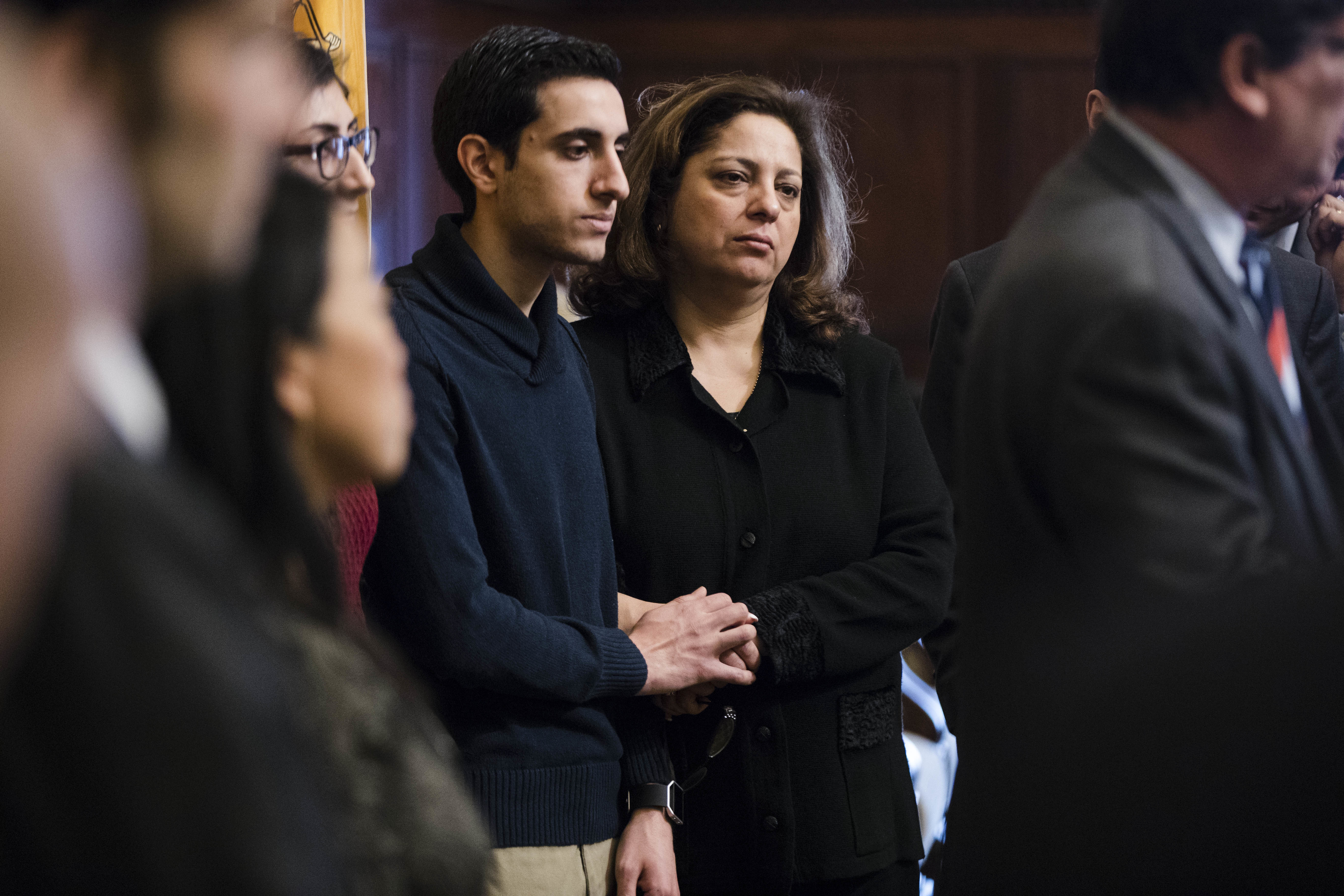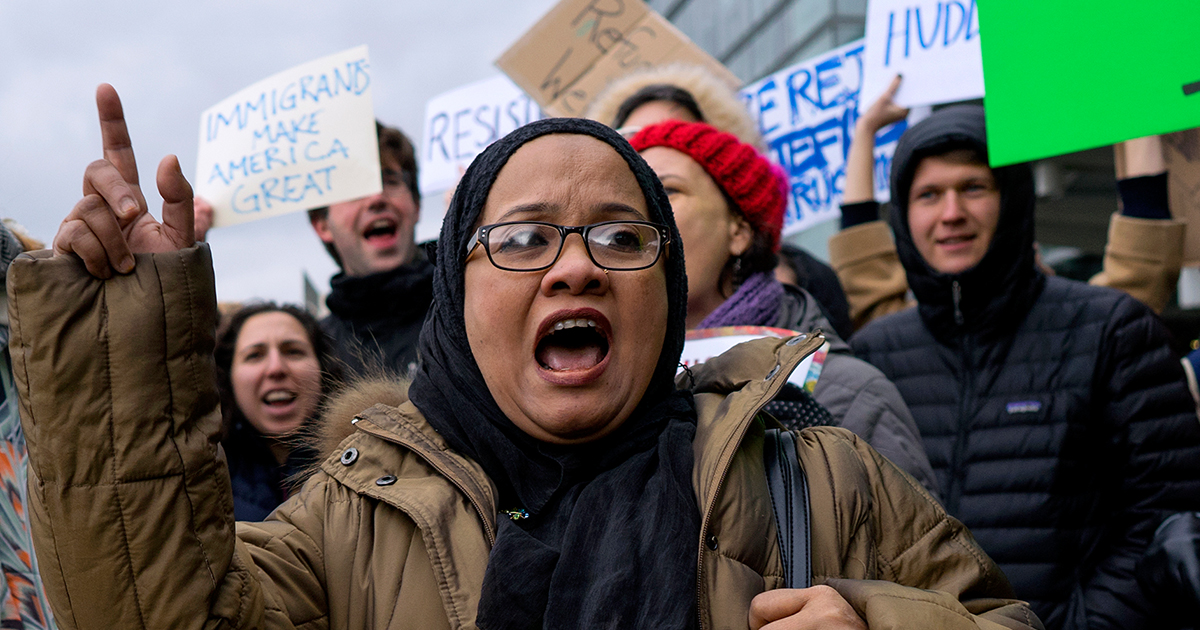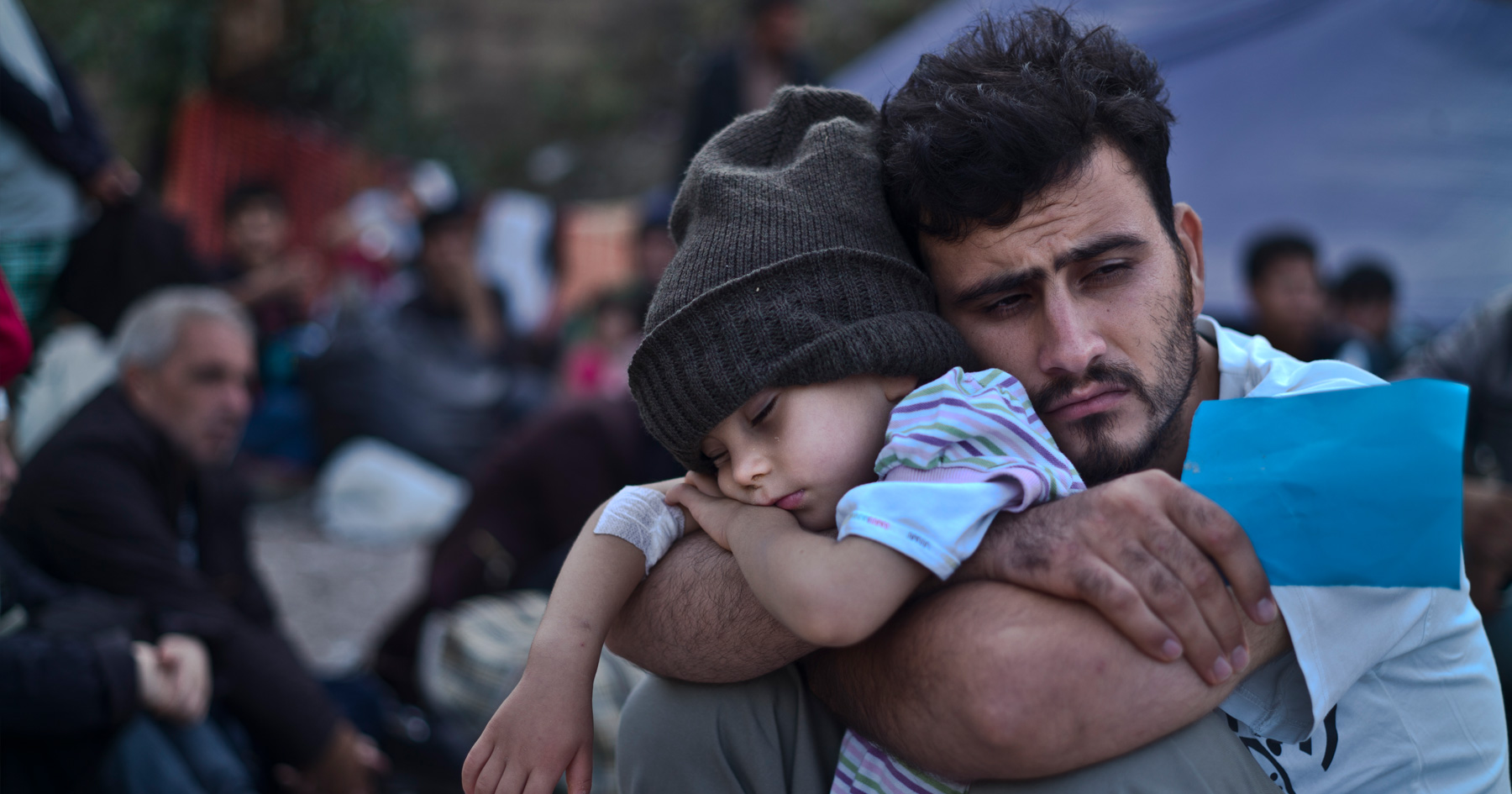Syrians in America Are Deeply Divided Over President Trump

By:
How could anyone from Syria support President Donald Trump? The story of Syrian immigrants Sarmad Assali and husband Dr. Ghassan Assali put that question on the tongues of thousands of Americans.
.jpg?auto=format&crop=faces&fit=crop&q=60&w=736&ixlib=js-1.1.0) AP Image Search - apimages.com
AP Image Search - apimages.com
In an NBC Nightly News interview conducted in late January, the Assalis, who are Orthodox Christians, explained that they backed Trump throughout his highly divisive campaign. However, that support was shaken after their own family members were caught up in his executive order restricting travel from seven Muslim majority countries, including Syria.
 AP Images - apimages.com
AP Images - apimages.com
"I would say why? Where's your human side to send somebody into a war zone," asked Sarmad Assali, whose family members eventually made it back to the United States through the legal battles that followed Trump's controversial order. "I understand he wants to make America safe, we're all on with this. I definitely want to be in a safe place, but people need us and we need to be there for them."
 AP/Craig Ruttle - apimages.com
AP/Craig Ruttle - apimages.com
But just as just as the Assalis have strained to understand Trump's actions, many have similarly struggled to comprehend how the family could have ever supported Trump, whose campaign was filled with anti-Muslim rhetoric.
Some Syrians might support Trump for their own political reasons.
Christian Syrians in Allentown told the Washington Post that they support Trump's executive order on immigration because they believe he will make the country safe.
Elias Shetayh said that "Trump is right" to implement the travel ban.
“Trump is right, in a way, to do what he’s doing,” he told the Post. “This country is going into a disaster.”
Despite the fact that no single terrorist plots have been carried out in the U.S. by any refugees, Aziz Wehbey said that he's afraid a terror attack in the U.S. could result in backlash against his family.
“We would not like to bring refugees for a simple reason: We do not know their background,” Wehbey told the Post “We’re concerned about, if God forbid a terrorist attack happened here ... that we’re all labeled as bad people. I hate to say it.”
 AP/Muhammed Muheisen - apimages.com
AP/Muhammed Muheisen - apimages.com
Wehbey said that he is not prejudiced against Islam, but the Syrians in his community are mostly Christians and he would not want to see a religious conflict in the U.S, considering the history of conflict between the two religious groups.
Katherine Kirkinis, a mental health counselor, told ATTN: via email that the answer may have to do with the Assalis desire to assimilate into American culture.
Kirknis explained that the Assalis may have been operating in something called the "pre-encounter stage," in which minorities do not actually think of themselves as minorities.
"The 'pre-encounter' stage is also associated with the desire to assimilate into the white mainstream," she explained.
 AP Photos - apimages.com
AP Photos - apimages.com
After the Assalis' family members were denied entry in to the U.S. it's possible that their sense of American identity was shattered.
"Interestingly, the next racial identity status is 'encounter' characterized by an event that causes conflict and questioning of their racial identity, which may have been what happened to them when their family members were stopped at the airport," she said.
